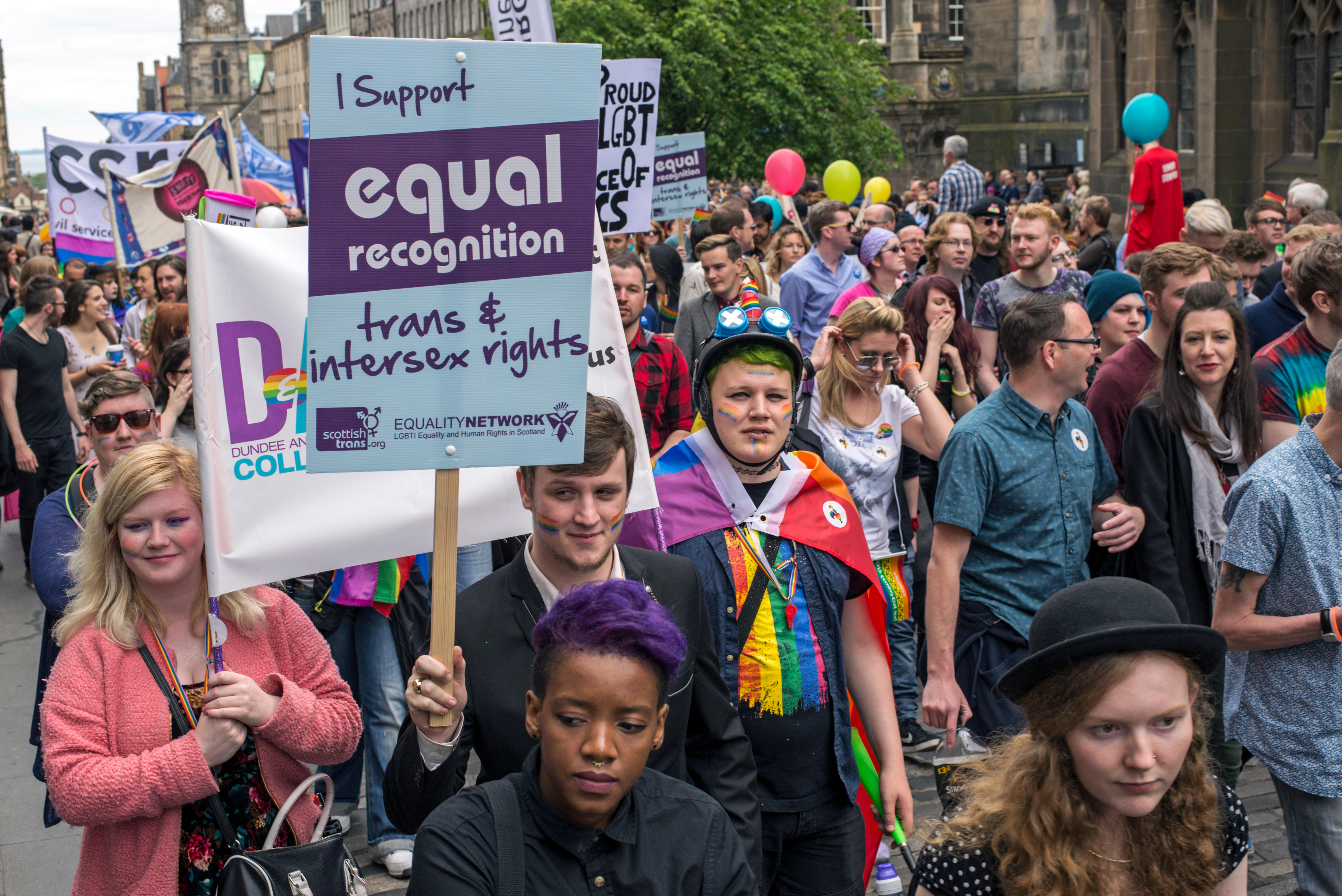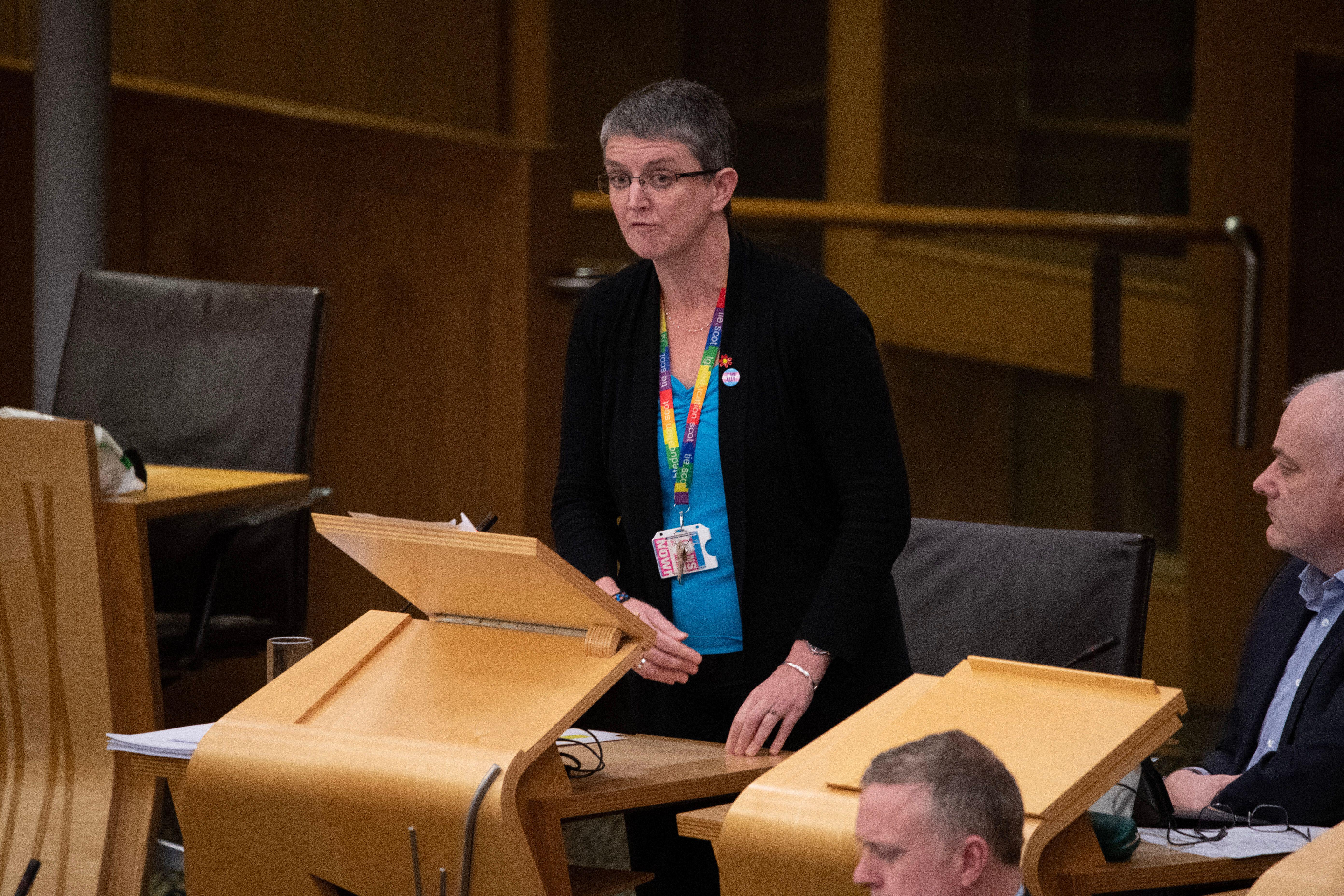Scottish Government loses legal challenge to Westminster veto of Gender Recognition Reform Bill
The Scottish Government has lost its court challenge over Westminster’s Section 35 Order block to the Gender Recognition Reform (GRR) Bill.
Passed by a majority of MSPs one year ago after unprecedented marathon sessions in the Scottish Parliament, the bill was immediately blocked by Scottish Secretary Alister Jack in the first-ever use of veto powers written into the devolution settlement.
The Scottish Government argued that he had done that purely because he did not like the policy contained within the bill, which would have meant he was acting unlawfully. Section 35 can only be used if the Scottish legislation it relates to is incompatible with international obligations or interferes with reserved matters.
It was the UK Government's case that the GRR Bill would alter the Equality Act, a UK-wide piece of Westminster legislation the Scottish Parliament has no powers to amend.
Lady Haldane, who presided over the matter, has ruled that the UK Government did act appropriately.
"Whilst [...] I have no hesitation in accepting that the petitioners [the Scottish Government] hold a sincere view as to what they suspect to be the motivation behind the making of the order I cannot on the material before me, conclude that the order was made on [a bad faith] basis," Lady Haldane wrote.
The case was heard at the Court of Session over three days in September, when Lord Advocate Dorothy Bain KC made the argument that Jack’s approach was based on a “policy disagreement” and that, if left unchallenged, there was a risk the UK Government would use the mechanism again. This was the first time since devolution that a Section 35 Order had been used.
The secretary of state could, Bain said, “veto practically any act of the Scottish Parliament because he disagreed with it on policy grounds”, adding that “that would be tantamount to the Scottish Parliament only being able to legislate insofar as the UK executive consented”.
In her judgment, Lady Haldane said that "perhaps self-evidently" if Jack had blocked the bill "in response to, or as a result of, a policy disagreement between the respective legislatures, then that would be an end of matters".
"The conditions for the making of an order under Section 35 would clearly not be met," she wrote.
She noted the Scotish Government's position that the UK Government should have raised concerns earlier in the legislative process rather than simply blocking the bill once passed, but concluded that that "does not support the inference or conclusion that a policy disagreement lay behind the making of the order".
Responding to the ruling, Jack said Scottish ministers “need to stop wasting taxpayers’ money pursuing needless legal action and focus on the real issues which matter to people in Scotland”.
The Scottish Government has not yet said whether it will attempt to appeal the decision to the Inner House.
First Minister Humza Yousaf said the judgment represented a "dark day for devolution" but said his government respects the court's ruling and "will take time to consider its findings".

Pride Scotia marchers show support for trans rights | Alamy
When the UK Government used its veto in January, then First Minister Nicola Sturgeon described the move as a “a full-frontal attack on our democratically elected Scottish Parliament”, while Jack said it was “about the legislation’s consequences for the operation of GB-wide equalities protections and other reserved matters”.
During the campaign to replace Sturgeon as first minister, ultimate winner Humza Yousaf underscored his commitment to challenging Jack’s decision, with the Scottish Government launching the judicial review proceedings in April, weeks after Yousaf took office.
The GRR Bill was approved by MSPs in December last year following a marathon debating session that saw members sit until the early hours of the morning to work their way through over 150 amendments.

The debate over the reforms has been highly polarised | Alamy
One of the main functions of the legislation is to make it easier for trans people to obtain a Gender Recognition Certificate (GRC) by self-identifying in their chosen gender, something that is not allowed under UK law, which requires a panel of legal and medical professionals to verify whether an applicant is eligible for a certificate or not.
Conservative Russell Findlay and the SNP's Michelle Thomson had attempted to amend the bill so men who had been charged or convicted of sexual offences could not obtain a GRC via self-ID, but their bid was rejected.
Then Social Justice Secretary Shona Robison, who is now deputy first minister, had argued that there was no evidence that self-ID would lead to an increase in “bad-faith actors”, but this position was challenged when the Isla Bryson case came to light in January this year.
In February Yousaf, who was at that point still health secretary, said Bryson, who was convicted of raping two women while living as a man, was “at it”, claiming to be trans in order to get an easier time in prison.
Though the SNP whipped its members to vote with the government, nine of its MSPs – Stephanie Callaghan, Annabelle Ewing, Fergus Ewing, Jim Fairlie, Kenny Gibson, Ruth Maguire, John Mason, Ash Regan and Thomson – rebelled.
Regan, who originally relinquished her post as community safety minister to oppose the bill then stood against Yousaf and Kate Forbes to replace Sturgeon, has since left the SNP to join Alex Salmond’s Alba Party.

Ash Regan | Alamy
Fergus Ewing, who has been sanctioned by the SNP for backing a vote of no confidence in Lorna Slater, a member of the party’s coalition partner the Scottish Greens, spoke out in support of Regan when Yousaf said her defection was “no great loss”.
Commenting on the judgment, Regan said: “I resigned from the Government as I simply could not support legislation that is so ill thought out, opposed by women’s groups across Scotland and a fundamental risk to the safety of women and girls.
“The Scottish Government lost the battle in court and they will further lose the support of the people of Scotland if they keep pursuing this policy. I urge Humza Yousaf to now completely scrap his government’s gender reforms.”
Labour's Claire Baker and Carol Mochan also voted against the GRR Bill, in contrast to the rest of their group while Conservatives members Jackson Carlaw, Jamie Greene and Sandesh Gulhane backed it, also in contrast to the rest of their group.
Speaking after the judgment was delivered, Scottish Greens equality spokesperson Maggie Chapman said: “This is a devastating day for equality. It is a democratic outrage, crushing basic rights and equality for some of Scotland’s most marginalised people. It shows the huge limitations and constraints on devolution and confirms that the UK Government refuses to see our trans siblings for the people they really are.
“It is horrible, it is heartbreaking and it is unjust. It makes a mockery of any vote or decision that we as parliamentarians take at Holyrood from now on, if the result is knowing that Westminster will veto anything they don’t like.

Maggie Chapman | Alamy
“Self-ID is normal and is used in countries around the world. What our parliament voted for was a small change that would have made a big difference to a vulnerable community. I hope the Scottish Government will consider all options for appeal.”
In a statement, Jack said: “I welcome the court’s judgment, which upholds my decision to prevent the Scottish Government’s gender recognition legislation from becoming law.
“I was clear that this legislation would have had adverse effects on the operation of the law as it applies to reserved matters, including on important Great Britain-wide equality protections.
“Following this latest court defeat for the Scottish Government, their ministers need to stop wasting taxpayers’ money pursuing needless legal action and focus on the real issues which matter to people in Scotland, such as growing the economy and cutting waiting lists.”
Labour's shadow Scottish secretary Ian Murray said the ruling should be respected, but noted it was "disappointing" that the matter had ended up in court.
“It is shameful that after years of debate, trans people feel no more protected and women no more reassured," he said.
“This is another demonstration of why both governments have to work together rather than spending taxpayers money fighting in courts and pitting communities against each other.”
Holyrood Newsletters
Holyrood provides comprehensive coverage of Scottish politics, offering award-winning reporting and analysis: Subscribe